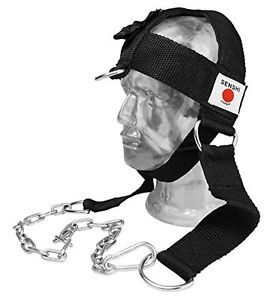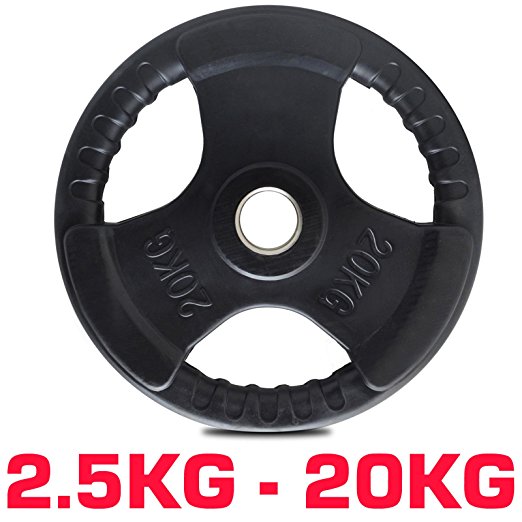Last Updated -
10th September 2021
If you have been leading a sedentary lifestyle and are considering
purchasing a sports motorcycle, you should consider preparing your body because it is
possible to damage your muscles and joints. So gentle exercises that
strengthen
these areas should be undertaken on a regular basis.
A sports motorcycle is not
like a car, it requires physical strength in the lower back, neck,
wrists, upper legs and arms to ride
it. So unless your muscles and joints have movement as well as strength, you may
find that your ability to properly handle the motorcycle is compromised,
especially if you use it on a track.
IMPORTANT WARNING:
Before undertaking any of these exercises shown in this article, please
consult with your doctor for advice, especially if you are elderly or
suffer from heart conditions or breathing problems. The doctor can
provide tests to check your heart and lungs for fitness.
When I first started exercising, I concentrated on all the excises shown
in these videos but now (after 2 years) I have progressed to a 15 minute
exercise every morning that includes the choice bits that maintain my
muscles, joints and hamstrings.
Stretching Hamstrings
If you have not been exercising regularly, especially if you are a couch
potato, you may find that your leg hamstrings have shortened, whereby
you may have difficulty in lifting a leg over the seat of a
motorcycle, never mind riding it. When I first started opening up my
hamstrings, I followed the exercises in this video completely, now I
tend to exercise just a few of the basic split routines near the end of
the video.
WARNING:
Hamstrings if overstretched, especially at the beginning of an exercise,
can cause severe pain in the legs that may take months to overcome
-
Lower Back Exercises
In 2015, I had chronic lower back pain and right leg sciatica intense
pain. The hospital MRI scan identified that my lower back vertebrae
where shot due to my old age and wear and tear. Riding a Yamaha 'Bobber'
motorcycle had placed strain on the vertebrae and exposed the weakness.
Over the 2015 period, I undertook these exercises which cured the
rattling of my vertebrae joints by adding a twin layer of strong muscle
down each side of my lower back. The only downside is that when sleeping
at night, I feel as if I have a bit of wood between my lower back and
the mattress - a small price to pay for no pain and great mobility. Like
all my exercises, I continue the best bits of this routine every
morning, mainly the simulated swimming routine, to maintain the joints
and the muscles of my lower back -
Bone Impaction - Regeneration
Bone impaction is important so small jumps on a hard surface or running
up and down stone steps helps to stimulate the bones growth and
regeneration in the body.
The easiest way to accomplish this is to walk barefoot on a hard surface
but as your foot descends to the floor, push it down harder and you
should feel the impact travel up the lower part of our leg and through
the knee. Its a bit like tap dancing without shoes. Like all exercises,
when you first start, make the stamp down of the foot a gentle one and
gradually build up the downward pressure. If you want to do the same
exercise for your arms, it is the press up position but you push your
body up into the air, whereby your hands leave the hard floor and then
catch your body weight as you strike back down on the floor.
Shoulder Pain
If you start riding a bike, especially if you are elderly, and find that shoulder strain or shoulder
muscle knots are developing, then consider reading this -
Trapezius Knot - Check The AC Joint For A Solution.
Muscle Building
To help build my muscles, I undertake
Isometrics
(at home) without any equipment which has
stripped away most of my body fat and replaced it with muscle. The
simplest isometric exercise is to place you hands in front of you
at about 3 inches from your body with your elbows bent,
palms facing each other with fingers pointing upwards. Imagine there is
a ball between your hands. You press your hands together but you never
let them close or touch as there is a ball between them so you continue
to keep them apart but press them harder and harder towards each other.
You should feel those muscles in your arms start to hurt as the pressure
is applied to them. You can do the same with other areas of your body by
controlling your mind to imagine the weights.
Since I started this article and having built up my lower back muscles
over the 2015 winter period, I have been out for a test run on a
2016 Honda Fireblade SP ABS Super
Sports motorcycle. The bike was excellent and my lower back muscles
supported me well during the 40 minute ride.
I sustained no pain to my
rear or my lower back but I found that during heavy braking, the G
forces did cause slight pain to the muscles around my shoulder blades
(not the spine) and on my wrists. I was aware that my knees were
sliding forward during braking on the Fireblade's tank as it did not
have knee slider grips so my shoulder back muscles and wrists as well as
the top of my arms were taking most of the strain.
I am sure that in
time and due to riding a 'full on' sports motorcycle these areas of my body will
strengthen by default, albeit I will suffer some pain discomfort until
they do.
Anyway,
I have included the following exercise into my usual routine and a side
benefit is that if you stretch and arch back properly, you can feel the
vertebrae in your back realigning themselves -
check out this video -
Strengthening Wrists, Triceps and Side Muscles
By it's very nature a sports bike is designed to be ridden fast and the
rider is subjected to some serious G forces, especially when heavy
braking as a great deal of upper body weight is placed on the wrists and
triceps muscles.
To help strengthen my wrists, triceps and side muscles, I have included the following exercise into my usual routine -
check out this video -
Strengthening Neck Muscles
I recently (2017) test rode a BMW S1000RR 'full on' sports bike and
found that my exercises had paid dividends, with one exception - the
bike's G forces due to the massive acceleration were pushing my helmet
back, which crippled my front neck
muscles for a week. I am fairly sure that it was not the 'sheer terror'
and gritted teeth, due to the acceleration, that caused the pain.
So it was back to the drawing
board and I added the following exercises to my list each day, although
I started by using hand pressure to simulate weight on my neck as I
lifted my head up and down and side to side. After a few weeks, I
graduated to the head harness and weight as shown in the video -
It was not too difficult to source the right kind of training
equipment which I purchased at Amazon and had it delivered to my
door.
I
 decided to get a neck harness that included a chin strap as I
also wanted to do side lifts - in the end I purchased a
Senshi Head Harness and
a 10Kg rubber weight disc, to hang on the end of the chain.
decided to get a neck harness that included a chin strap as I
also wanted to do side lifts - in the end I purchased a
Senshi Head Harness and
a 10Kg rubber weight disc, to hang on the end of the chain.
From the Internet - "Brand new Senshi Japan
Version III neck head
harness now featuring
our V2 special
'attacker' design, made
to allow the user to
work out muscles
 in the
neck at all angles and
directions meaning you
can put on as much
muscle as you want in
the exact places you
want. The head harness
comes with a heavy duty
adjustable metal chain,
one size fits all. Head
harnesses are generally
used in order to develop
or strengthen muscles in
the spine as well as
neck, this is very
beneficial in MMA as it
allows the fighter to
have a strong neck that
can avoid grapples such
as the guillotine"
in the
neck at all angles and
directions meaning you
can put on as much
muscle as you want in
the exact places you
want. The head harness
comes with a heavy duty
adjustable metal chain,
one size fits all. Head
harnesses are generally
used in order to develop
or strengthen muscles in
the spine as well as
neck, this is very
beneficial in MMA as it
allows the fighter to
have a strong neck that
can avoid grapples such
as the guillotine"
- High Quality Nylon Material Head Harness
- Soft padding to reduce discomforts caused by other head harnesses
- Allows you to work out neck muscles all over your neck at all angles
- High quality materials used to produce neck head harness
- Adjustable heavy duty metal weight chain